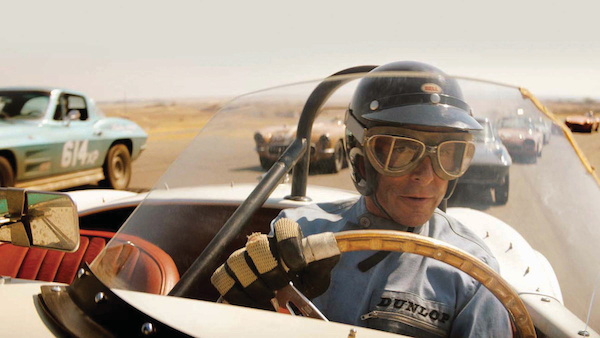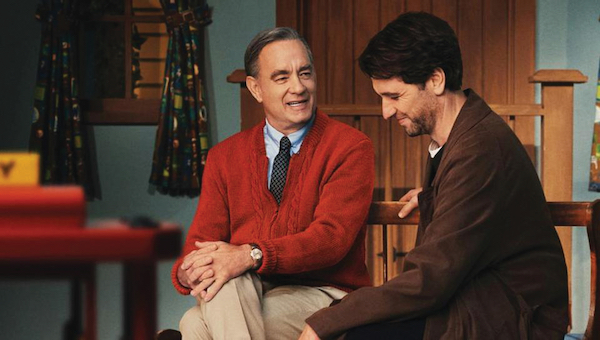When Bong Joon Ho’s Parasite won Best Picture (as well as Best Director, Best Screenplay, and Best International Film) at the Academy Awards on Feb. 9, upsetting the odds-on favorite, 1917, it was a moment of pure joy for lovers of the art of film. The Oscars, which have long reflected the public-relations judgments of the Hollywood establishment (i.e., Academy voters), were finally opening up to people of color, to foreign-language filmmakers, and (though not this year) to women behind the camera.
 Clearly, there’s still a long way to go, but coming after Moonlight’s win a couple of years ago, Parasite, which A.O. Scott in The New York Times called an “aesthetically energized movie that obliterates the tired distinctions between art films and popcorn movies,” confirms a trend. Scott is correct: Parasite is inventively and intelligently filmed and a searing critique of first world capitalism, of which South Korea is now emblematic. Yet it’s also deliciously entertaining, its characters slightly cartoonish and its storytelling peppered with Hong Kong-style violence. In other words, if it weren’t in Korean, it might even be seen as slick. (Not convinced? Check out Bong’s English-language picture, Snowpiercer.)
Clearly, there’s still a long way to go, but coming after Moonlight’s win a couple of years ago, Parasite, which A.O. Scott in The New York Times called an “aesthetically energized movie that obliterates the tired distinctions between art films and popcorn movies,” confirms a trend. Scott is correct: Parasite is inventively and intelligently filmed and a searing critique of first world capitalism, of which South Korea is now emblematic. Yet it’s also deliciously entertaining, its characters slightly cartoonish and its storytelling peppered with Hong Kong-style violence. In other words, if it weren’t in Korean, it might even be seen as slick. (Not convinced? Check out Bong’s English-language picture, Snowpiercer.)
The subtitles cure that, of course, reassuring big city aesthetes of its value as art and, basically, killing box office prospects in the U.S. But they also make the Academy’s vote seem that much bolder: Parasite is the first foreign-language film ever to win Best Picture.
Like much of South Korean cinema these days, the plot of Parasite is tragic in spite of the humor, in a classical sense: many of the characters die, and the survivors are chastened. In the movie, two families are positioned on a colliding course — the working-class Kims and the nouveau riche Parks. The Kims connive ways to get into the Parks’ house as employees, their familial identity masked. For them, it’s a get-rich-quick scheme. But the families get to know each other in curious ways, and the story is so beautifully resolved (or not), you’ll come out of watching it changed forever. Parasite is a great film, one that’s still at Wellfleet Cinemas as well as streaming, and Bong is a major talent.
 Also out recently on disk and streaming sites is Ford v Ferrari, which picked up Oscars for Best Editing and Best Sound Editing. Starring Matt Damon and Christian Bale as car-racing legends Carroll Shelby and Ken Miles, respectively, and directed by James Mangold (Walk the Line; Logan), Ford v Ferrari is old-fashioned Hollywood at its best: high-quality production values, wonderful acting, a sharp but predictable script, taste, and heart.
Also out recently on disk and streaming sites is Ford v Ferrari, which picked up Oscars for Best Editing and Best Sound Editing. Starring Matt Damon and Christian Bale as car-racing legends Carroll Shelby and Ken Miles, respectively, and directed by James Mangold (Walk the Line; Logan), Ford v Ferrari is old-fashioned Hollywood at its best: high-quality production values, wonderful acting, a sharp but predictable script, taste, and heart.
It’s set in the ’60s and has an anti-corporate spirit, as Miles drives a Ford GT40 in the Le Mans race, with an eye toward defeating Ferrari and the reigning European automotive industrialists. The Ford suits are suitably oily, and Tracy Letts as Henry Ford II nearly steals the show. The scene in which Damon as Shelby takes him on a test drive is outrageously funny and almost endearing. Bale, as the self-defeating iconoclast and driving ace Miles, is heartwarming in ways you’d never expect him to be, particularly as a family man. The races are filmed with exceptional skill, in that they make visual sense without distracting hyper-editing.
 Among Hollywood studios today, a movie such as Ford v Ferrari is a rarity. Money and resources are devoted instead to major franchises and comic-book extravaganzas. Ironically, it was one of the last films made by Twentieth Century Fox as a Hollywood major; Fox is now owned (along with Marvel Studios and Lucasfilm) by Disney. Even more ironic, Ford v Ferrari wasn’t a big hit, which is a shame. It won’t expand your horizons, but it’s a solid good time.
Among Hollywood studios today, a movie such as Ford v Ferrari is a rarity. Money and resources are devoted instead to major franchises and comic-book extravaganzas. Ironically, it was one of the last films made by Twentieth Century Fox as a Hollywood major; Fox is now owned (along with Marvel Studios and Lucasfilm) by Disney. Even more ironic, Ford v Ferrari wasn’t a big hit, which is a shame. It won’t expand your horizons, but it’s a solid good time.
A prestige drama that went home empty-handed on Oscar night, A Beautiful Day in the Neighborhood is coming out on disk this week and available for streaming. Starring Tom Hanks as the children’s television maverick Fred Rogers, of the long-running PBS series Mister Rogers’ Neighborhood, the movie is based on an Esquire magazine article about Rogers, by Tom Junot. Playing Junot (renamed Lloyd Vogel) in the film is Matthew Rhys, star of the cable series The Americans.
The gist of the story is that the jaded yuppie investigative reporter Vogel is primed to despise Rogers but becomes a convert. And Rogers, despite a pleasant performance by Hanks (nominated for Best Supporting Actor), is depicted as something of an angel in disguise, humbly convincing the world of the value of goodness. The movie, directed by Marielle Heller (The Diary of a Teenage Girl), is competent but utterly conventional, and despite its heroic posturing about Rogers, it’s really not about him — instead, it’s about the restoration of the reporter’s faith in sentimental values. To understand Rogers as a flesh-and-blood hero with a remarkable mission and less-than-holy attributes, watch Morgan Neville’s extraordinary documentary Won’t You Be My Neighbor? It’s available to stream on HBO Go or Amazon Prime.



